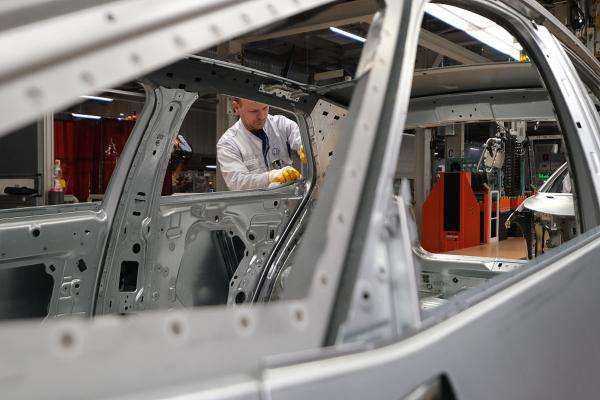About 198,000 cars were newly registered in Germany in November 2021, down 31.7 percent from the same period in 2020, according to data recently released by Germany's Federal Motor Vehicle Administration. But electric vehicle sales bucked the trend, with about 40,000 pure electric vehicles registered in the month, up 39 per cent from a year earlier. The data also showed that in the first 10 months of 2021, the registrations of pure electric vehicles, hybrid electric vehicles and fuel cell vehicles accounted for 24.2 percent of the total vehicle registrations in Germany, up 122 percent year-on-year.
The rapid development of the German electric vehicle market is inseparable from a series of government encouragement and support policies. In June 2020, the German government launched an economic stimulus package in response to COVID-19, including a substantial increase in the amount of "innovation subsidies" for electric vehicles: Consumers who buy pure electric cars costing less than 40,000 euros will get up to 9,000 euros in subsidies, while those who buy hybrid cars costing 40,000 to 65,000 euros will get at least 5,625 euros in subsidies.

The German government has also ruled that pure electric vehicles or hybrid vehicles with a range of more than 40 kilometers or co2 emissions of less than 50 grams per kilometer in battery mode will be eligible for an electric vehicle license. Holders of this type of licence can park free in public car parks in most German cities. In addition, consumers who buy all-electric vehicles by 2030 will be eligible for exemption from car tax.
At present, German consumers' demand for electric cars is on the rise. In July 2021, Germany reached its goal of having one million electric vehicles on the road. A recent survey by German energy company E.on found that two-thirds of drivers' license holders would like to buy an electric car.
The development of electric vehicles will remain high on the agenda of Germany's new government. Under a coalition agreement between the Social Democrats, Greens and FDP, Germany will have at least 15m electric and fuel-cell vehicles on the market by 2030. On infrastructure, the government will simplify approval conditions for the construction of charging piles and pay special attention to the construction of quick charging facilities, aiming to have 1 million public charging piles by 2030.

The German government says it will build more batteries that can be recycled. Promoting the production of a new generation of sustainable batteries will be a priority. Volkswagen ag said it will expand its investment in electric vehicles to 52 billion euros over the next five years, including opening six new battery plants with partners, and its Wolfsburg plant will begin full production of electric vehicles by 2024.
Analysis shows that, as the European Commission announced the goal of achieving carbon neutrality by 2050 and put forward a package proposal to deal with climate change, accelerating the development of the electric vehicle market is of great significance for Germany to reduce carbon emissions and achieve green travel.

